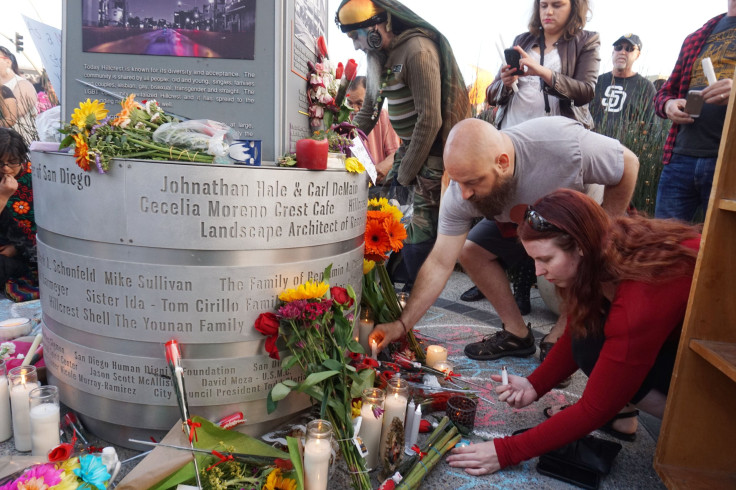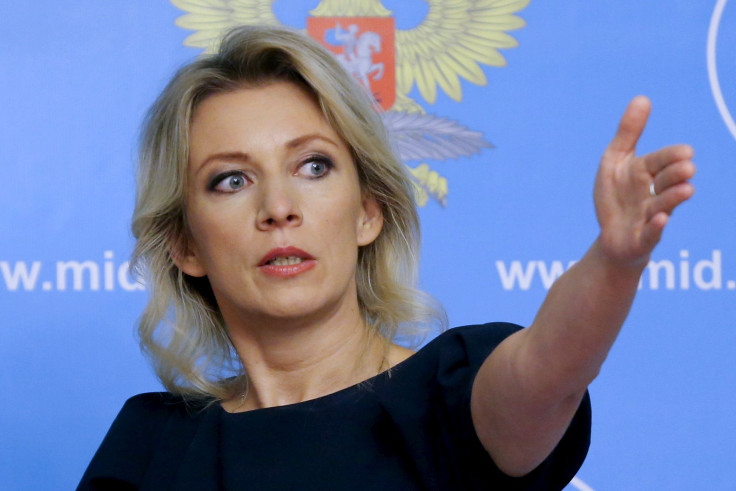Russia Foreign Ministry Slams Homophobic Reaction To Orlando Shooting Despite Poor Record On Gay Rights

MOSCOW — Western governments and human rights activists have long criticized the Russian government for its poor record on gay rights — a 2013 law banning the dissemination of "gay propaganda" among young Russians was met with international condemnation — but Russian state media coverage of the mass shooting at a gay club in Orlando, Florida, has been remarkably even-handed. Mariya Zakharova, a Foreign Ministry spokeswoman, writing on her Facebook page late Sunday, sharply criticized homophobic statements about those killed and injured during the attack.
“Comments like ‘I don’t care about those who died in Orlando because they are gay’ are simply disgusting. Reasoning along the lines of ‘through their choice of sexuality they condemned themselves’ are beyond the pale,” Mariya Zakharova wrote after Russian citizens posted homophobic, hate-fueled comments on social media.
“It’s impossible to defend even the most correct, traditional values if you have no compassion,” Zakharova said.
Comments below the post included one from a Dmitry Tayursky, who asked, “And if it was pedophiles who had been shot: What would your reaction have been?” A woman, Antonina Hooft, wrote: “The lives of gays are for me are less valuable than any child with a disability.”

Both the anti-LGBT convictions of the shooter and his alleged links to the Islamic State terror group were extensively covered by Russian media after the atrocity, and President Vladimir Putin was quick to offer his condolences Sunday. The Kremlin has consistently sought to highlight common ground with the West against Islamist extremism and terrorism, apparently as a way to mitigate its international isolation following the Ukraine intervention and Western sanctions.
People were still bringing flowers and candles to the U.S. Embassy in Moscow on Monday, a national holiday in Russia. “It is deeply moving to see so many expressions of condolences and flowers outside the embassy,” embassy spokesman Will Stevens wrote Monday on Twitter.
It is deeply moving to see so many expressions of condolences and flowers outside the Embassy today. Thank you! pic.twitter.com/iSqnX8gLgm
— Will Stevens (@WBStevens) June 13, 2016
While there are estimated to be large numbers of unregistered weapons in Russia, and the black market in guns is believed to be significant, Russia’s relatively strict gun laws mean it does not see the kind of mass killings — as in Newtown, San Bernardino and Orlando — that take place regularly in the United States. About 9 percent of Russians are estimated to own a firearm.
Experts say the firearms used in crimes in Russia are usually obtained from police or military stockpiles via corruption.
Many types of weapons are forbidden to ordinary Russians, and the procedure to acquire a gun involves extensive background checks, mental health examinations and home inspections. The laws regulating gun ownership, passed in the early 1990s after the fall of the Soviet Union, were designed to facilitate hunting.
A survey by independent Levada Center in 2013 showed that 81 percent of Russians are opposed to an easing of gun laws.
© Copyright IBTimes 2024. All rights reserved.






















